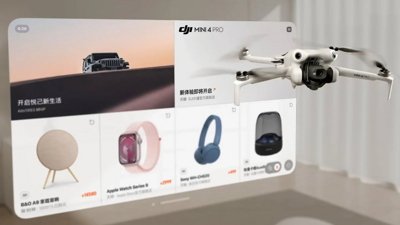Behind closed doors: Jobs on a Mac tablet and Apple cell phone
Apple Computer chief executive Steve Jobs has never been keen on the concept of a tablet-based Mac but an Apple cell phone may be a completely different story, according to personal accounts from one of the company's former higher-ups published by the UK's Guardian on Thursday.
"Nine key NIH people attended the meeting, including its two highest-ranking technology officers," Sobotta wrote. "Setting up an executive briefing at Apple is a bizarre process that takes a couple of months; if you also want Steve to grace the briefing, add another six weeks to run a formal request up the chain of command, including just about every detail but the DNA of the people who want to meet him."
Even when Steve does show, Sobotta wrote, it's likely "he'll talk about whatever he has immersed himself in recently" and it "might not have anything to do with what the customer wants to hear." Then, of course, there are the horror stories of the Apple co-founder reprimanding customers to no end.
"Once, when renegotiating a Pixar distribution deal with Disney, he humiliated Disney's chief information officer in front of his staff," Sobotta wrote. "Steve pointed to a couple of recent Disney flops, and told the attendees that they could expect more of the same as long as the CIO was stupid enough to keep Macs out of the creative process."
But that spring 2002 meeting between NIH and Jobs was a bit different, he said. On that day, Jobs reportedly brought his brilliance and checked the arrogance at the door. And he responded to the NIH's requests for a Mac tablet with the "most impressive" answers Sobotta had ever heard him give.
"First, he said, the wireless bandwidth for huge images, plus the security needed to successfully do what NIH wanted, was just not on the horizon," the former Apple employee recalled. "Plus, tablets' screen resolution was nowhere near that required for NIH's high-quality medical images. Finally, any product designed to work in the medical field would attract significant liability. The hint was that Apple wasn't interested in anything with that kind of potential liability. That pretty well shut down the issue."
At the time, the NIH also reportedly had more than 2,000 BlackBerry users and wanted Apple to push RIM for better compatibility. "Tough: Steve basically said it was another niche product, and that while there would be convergence of computing and phones, the BlackBerry was not that product," Sobotta wrote. "He said the really converged, ubiquitous devices would have to fit in your shirt pocket, and be better than either a phone or a computer by itself."
Of course that was five years ago, and Sobotta is now "99 percent confident we will see an Apple phone, with enhanced music capabilities and maybe a few computing features such as email and contacts synchronisation with Macs or through .Mac."
"With a focus on simple mail and contact integration with its online .Mac (mac.com) service, Apple could provide advantages for early adopters while making its .Mac service better value (because it isn't right now)," he wrote.
For more on Jobs, a Mac tablet and iPhone prospects, check out the full version of the intriguing report over at the Guardian.
 Slash Lane
Slash Lane










 Amber Neely
Amber Neely
 William Gallagher
William Gallagher

 Malcolm Owen
Malcolm Owen











